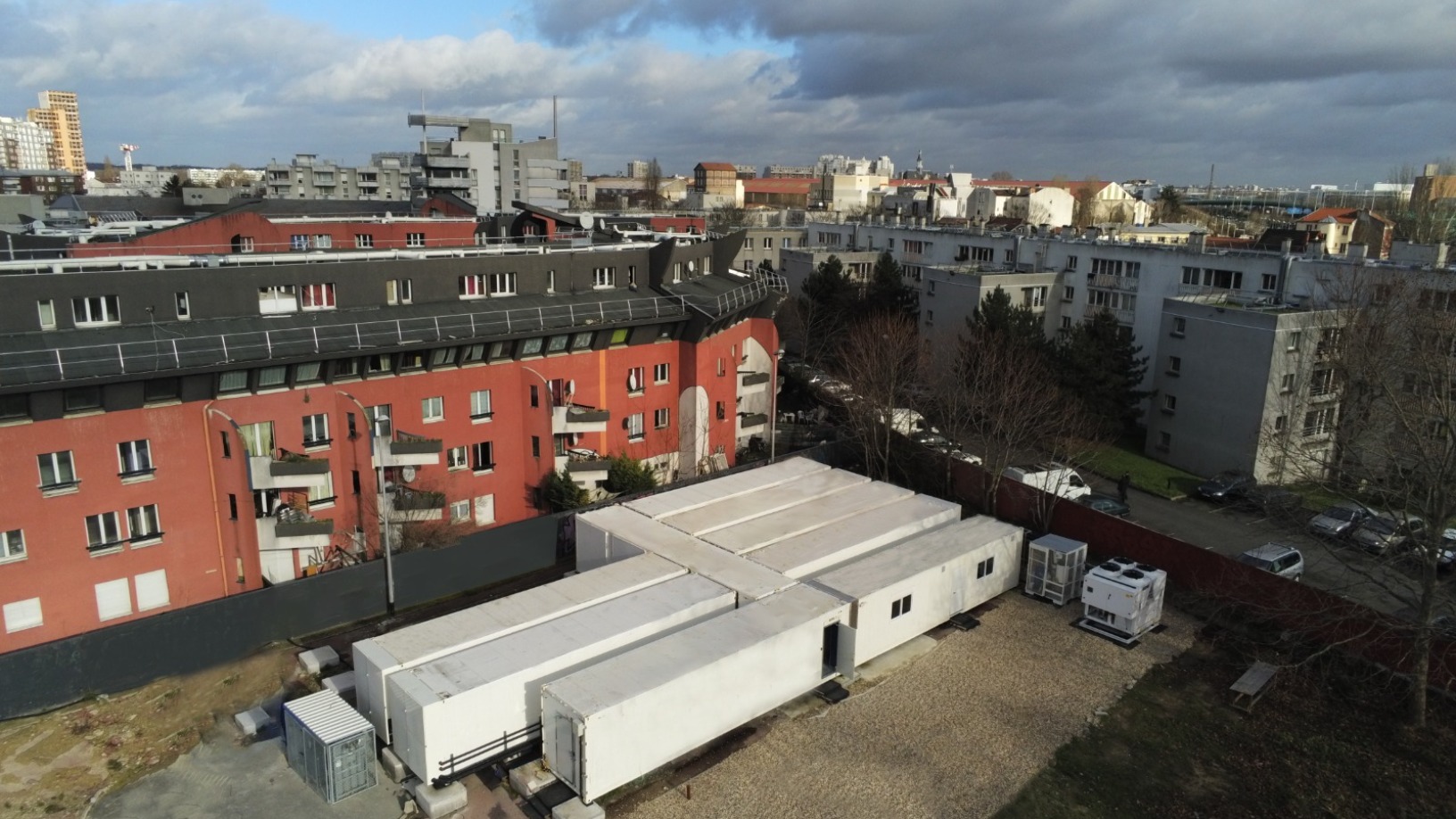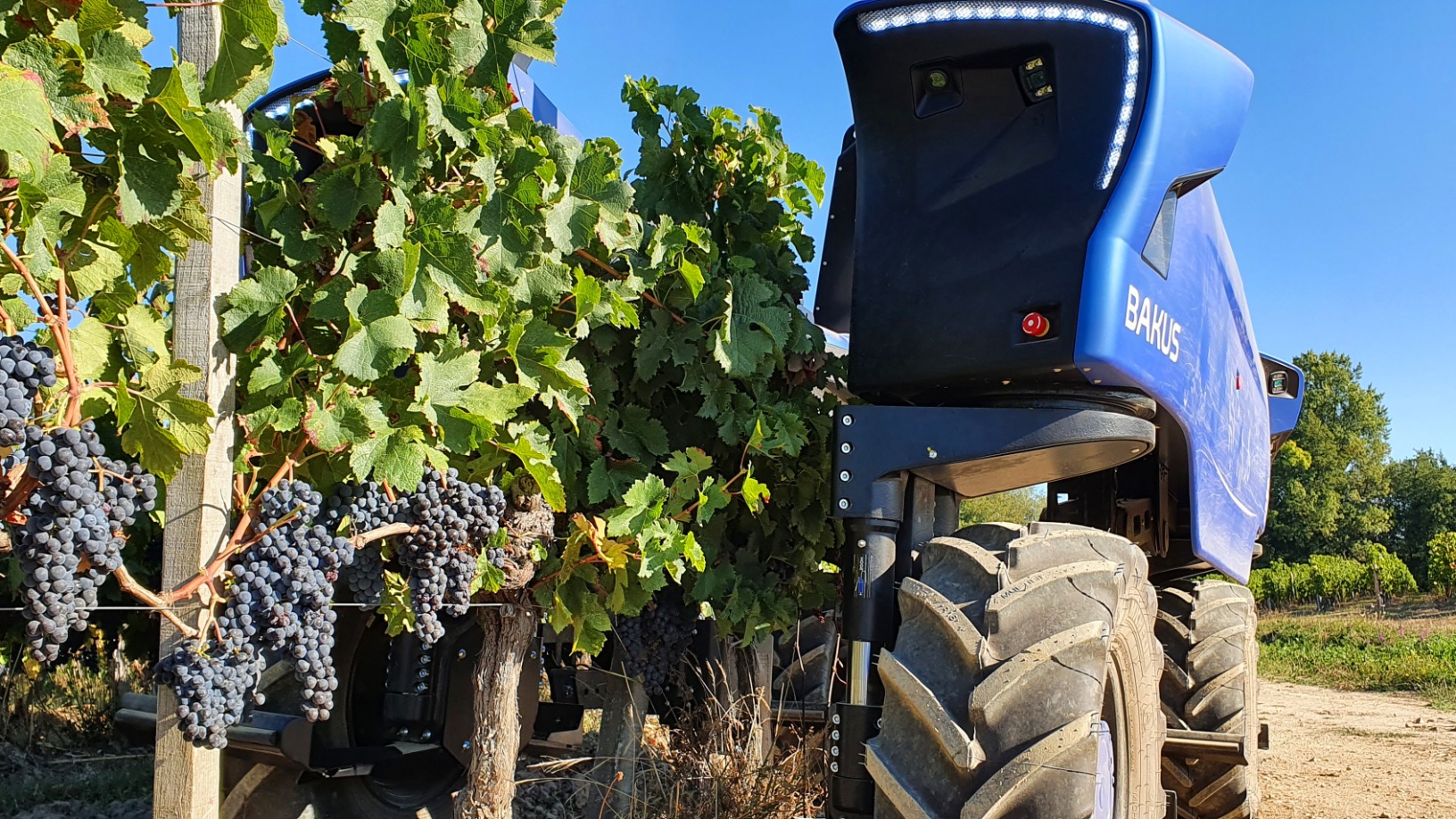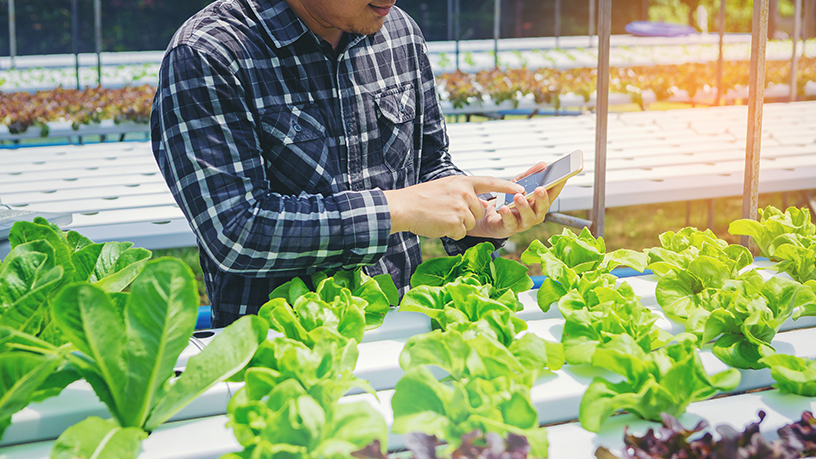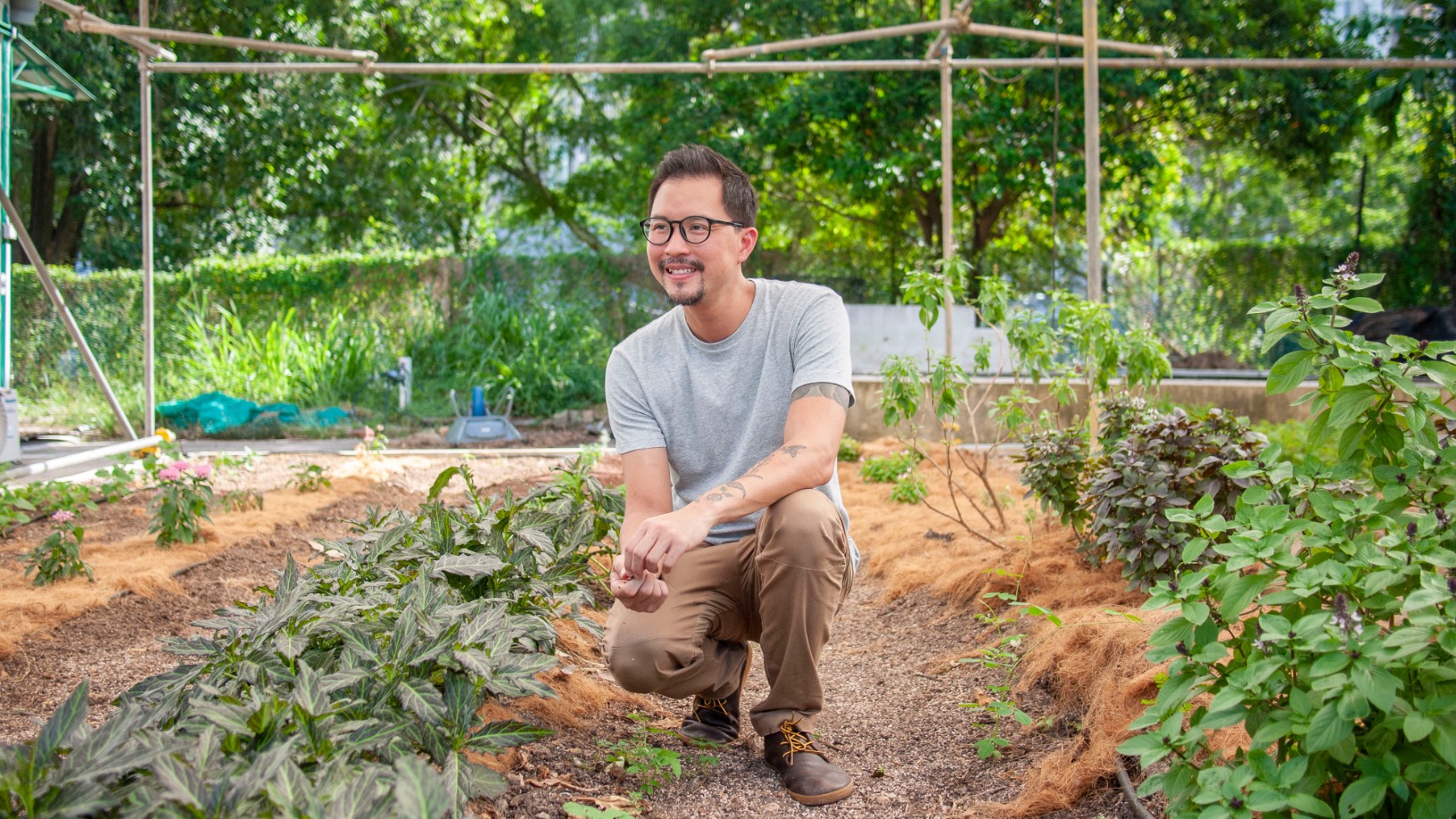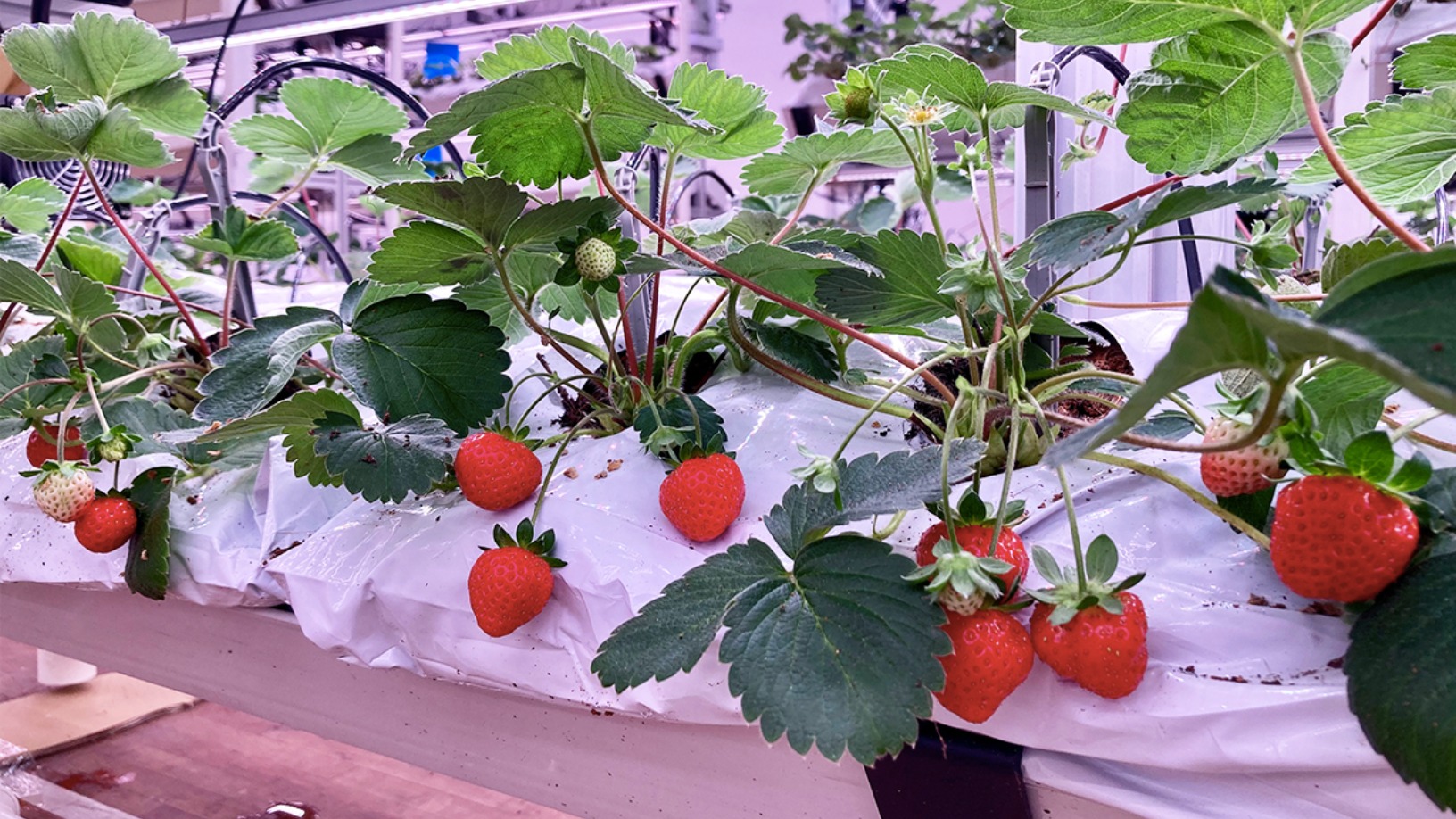Struck by the difference in taste and quality between fruits and vegetables available in Paris and the excellent local produce in the countryside where they grew up, friends Guillaume Fourdinier and Gonzague Gru instinctively knew the solution. So in 2015, the two founded aeroponics startup Agricool to grow fresh fruits and vegetables locally in cities, less than 15km from the consumer.
Six years on, Agricool has gone from growing its first 10 strawberry plants aeroponically in an abandoned shipping container on a farm owned by Gru to operating three urban farms supplying 70 stores in the Paris area with 7,000 tubs of fresh strawberries, herbs and salad leaves every week.
“We focused on strawberries at the start because it is a product where the loss of taste [between what is grown locally and not] is clearest," said Fourdinier, Agricool’s CEO. In addition, the startup wants to scale up local food production for growing urban populations. It aims to supply a third of the world’s large cities with fresh, locally grown produce by 2030.
“If Paris was cut off, within three days the city would have nothing to eat,” Fourdinier said. "Our aim is not to replace traditional farming, but we need to find ways to produce 70% more food between now and 2050. [That means] finding complementary solutions that allow [people in cities] to eat better food that is more nutritious, and free of harmful pesticides.”
Agricool’s mission has resonated with investors, who have responded with strong interest. To date, the company has raised €37m – €4m in 2016, €8m in 2017 and €25m in 2018 from Danone Manifesto Ventures, XAnge, Daphni and other angel investors.
If Paris was cut off, within three days the city would have nothing to eat
Smart urban farms
Agricool’s initial concept was based on individual or small numbers of shipping containers operated through a network of franchisees, but it has since pivoted to an urban farm concept, with a cluster of containers, which it calls Cooltainers, connected by a central technical unit. This offers economies of scale and improves energy efficiency by up to 30%.
The urban farms use patented technology that tracks more than 1,000 data points per second to ensure the ideal brightness, humidity, and temperature that the crops need depending on their growth stage. Powered by renewable energy, the containers’ IoT technology also enables autonomous, 24/7 control of lighting, air quality, and climate within the containers. This maintains optimal growing conditions at all times and ensures maximum yields.
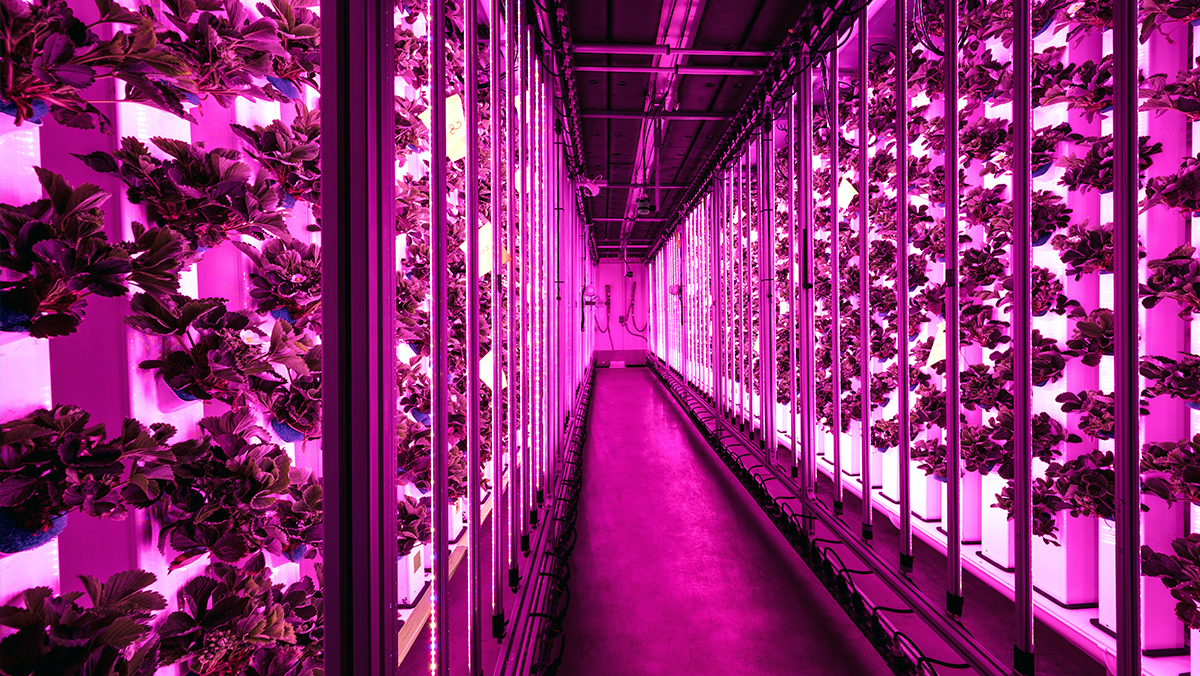
Each 12-meter container has a total production surface of 80 sqm, providing enough space to grow 3,600 strawberry plants aeroponically on vertical walls. Pollinated by bees – each container has a hive – the plants are fed with nutrients delivered via a closed-circuit watering system. Agricool says its technique is pesticide-free and uses 90% less water to grow strawberries than traditional farming methods.
The company says the standardized, automated design of its Cooltainers simplifies operations, regardless of the farm’s location. Agricool has installed a Cooltainer farm at The Sustainable City in Dubai, where it has been producing strawberries for local consumption since 2018.
“Weather has been the biggest issue [for strawberry] growing in the Middle Eastern climate, especially with 50°C summers," said Agricool’s manager for international operations, Georges Beaudoin. "We were afraid that extreme heat would impair the Cooltainer’s temperature regulation, a function which plays a big part in allowing plants to deliver the best fruits, but our Cooltainer has been performing well.”
Like Lego bricks
Today, Agricool’s largest urban farm has 10 Cooltainers located in the Paris inner-ring suburb of La Courneuve, about 8 km from the city. It also operates two farms of three containers each at Courbevoie and Asnières sur Seine, located 11 km and 12 km respectively from central Paris and its first demonstration container at Bercy in Paris 12th district.
The modular, adaptable design of the Cooltainers makes it easier for them to be deployed in crowded cities, even in polluted urban spaces or stacked on the sides of motorways. “They are like Lego bricks on a human scale and are perfectly suited to integrate into city environments,” Foudinier said in a press statement at the February 2020 inauguration of the farm at La Courneuve.
Although urban farming enables crop cultivation in a controlled, space-efficient environment that is not subject to the vagaries of climate, the high initial investment and subsequent maintenance costs can restrain growth. For Agricool, the purchase, adaptation, and outfitting of each shipping container takes six weeks and costs about €100,000.
In particular, the investment in LED lights suitable for horticulture combined with the electricity required to power them is a key cost component. Having tested dozens of different options, the company eventually decided to design and develop custom-made LEDs, which consume less electricity and deliver optimal results.
Agricool has expanded its distribution network in Paris in the past year to include major supermarket chains Monoprix, Franprix and Carrefour. The company plans to increase its staff from 80 to 200 and expand its distribution network to 200 points of sale by the end of 2021. To date, it has sold more than 100,000 units, priced at €2.99 for a tub of strawberries and €3.20 for a tub of lettuce leaves.
“We’re making money,” Fourdinier said. “But the challenge of urban agriculture remains. We want to show that our model is profitable.”
